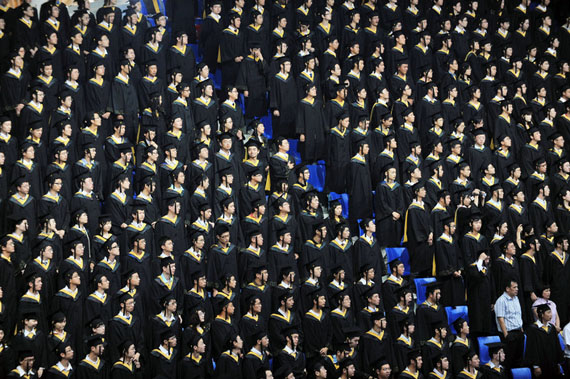Whenever we talk about higher education, we always hear about the world’s focus shifting to East. The fact is that no other region has undergone such transformation as Asia in the last half-century.
Due to unparalleled economic growth, there have been major social and demographic changes and institutional reforms. Most countries have brought greater stability. The large middle class, openness, market reforms and other economic developments have contributed to interconnectedness between Asian states and rest of the world.
http://financialeconomyblog.com/wp-content/uploads/2013/02/Many-graduates-in-China.jpg
This is also reflected in the higher education landscape, especially when economic growth in many developing economies of Asia is linked to advance skills, knowledge production and rising demand in higher education. China will have 30% of world’s graduates between ages of 25 & 34 by the year 2020. India, which is Asia’s 3rd largest economy is expected to add 300 million people in the next 2 decades to its workforce which is equivalent to the whole US (United States) population. All this growth will be among youth, which is a part of India’s huge demography which needs to be educated.
Many Asian faculty have obtained their PhDs from US or Europe are currently in leadership positions. Many students of Asia plan to continue their post-secondary studies in US or European universities likely in US or Australia. The number of international students that come to US from China, India and Korea is 64% of the total international students. Even students from US have started to move to Asia for short-term courses and full-fledged degrees.
Asian institutions are upgrading themselves and becoming interlocutors, partners to universities in other parts of the world. The relationship that is developing between the institutions is likely to result in rise in opportunities.
Despite the fast and large growth, there are many challenges for Asian education system like quality assurance, issues of poor infrastructure and attracting good students and retaining them.
Marc Flores
